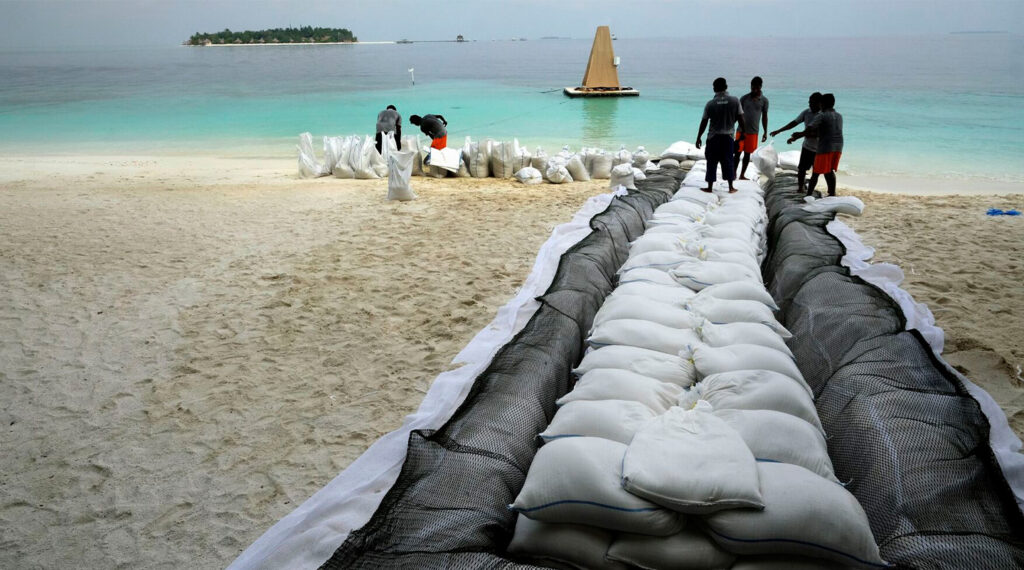Bridging the divide: How funders can align climate mitigation and adaptation

As climate-related disasters grow more frequent and severe, people around the world are experiencing the impacts of climate change. This raises a pressing question for the climate movement and the funders that support it: how can we ensure urgent action to reduce emissions whilst also helping communities adapt?
Climate strategies have traditionally divided up adaptation and mitigation into two separate silos. It is seen as a zero-sum game – “a Euro spent on adaptation cannot be spent on mitigation” with some even considering adaptation as a threat to climate action, diminishing people’s sense of urgency.
A funder’s role: bridging the divide
This perspective misses an opportunity. We are underestimating the benefits of integrating adaptation with mitigation. Adaptation isn’t just a short-term fix – it empowers communities in a time of growing powerlessness, helps counter emotional climate denial, creates social capital for the future, and offers entry points for new audiences to take climate action. Funders can help bridge this divide between adaptation and mitigation, supporting projects that integrate both and, more importantly, encouraging cooperation between those working on adaptation and those working on mitigation.
Emotions to action
Underpinning this is the need to also truly understand our audiences. Funders have prioritised projects built on an evidence-based or technical approach to drive climate action – if we give people all the information and facts they will act. This overlooks the importance of a psychosocial approach – understanding and engaging with the powerful emotions and narratives that determine how people act and see the world.
A pathway to agency
To this end, one of the most pressing challenges in the age of polycrisis is the growing sense of powerlessness. People feel they no longer have control over their lives or the political system they live in. With growing powerlessness comes the risk of toxic resentment and emotional disengagement or denial. Mindworks’ recent study on anger and agency found that people who felt more personally disempowered (not in control of their lives) were more likely to express their anger in destructive or toxic ways. This offers a breeding ground for populist groups to weaken support for climate action.
Unfortunately, climate change intensifies this feeling of helplessness as more people realise that even dramatic efforts to reduce emissions won’t solve their immediate problems. This is compounded by a lack of belief in politicians’ ability or willingness to act. People’s sense of agency can only grow when they see the impacts of their actions. Mitigation action, however necessary, offers no immediate improvement to people’s daily lives. It instead leaves people with a sense of powerlessness to change their imminent reality.
Adaptation, on the other hand, offers a pathway to restore this agency.
Collective adaptation efforts not only tackle the direct impacts and people’s immediate living conditions, but also grow the sense of personal and political power. Cities like New York and Rotterdam have pioneered such citizen-focussed strategies, giving people the ability to see the impact of their actions and building their agency.
Breaking the cycle of denial
Emotional climate denial is an often-overlooked obstacle to support for climate action. Acting as psychological armour, denial deflects urgency and allows people to remain in a state of comfortable inaction. Emotional denial takes on many forms, ranging from outright rejection – “Climate change is a hoax!” – to more nuanced deflections: “It’s not as bad as people claim,” or “Technology will save us!” In 8 out of the 10 countries we surveyed, over 80% of the population exhibited either full, partial, or optimistic denial, rising to 91% in India.
As extreme weather events become more frequent, this denial will continue to rise unless people are equipped to improve their situation and confront the coming challenges head-on. Empowering people through adaptation and giving them the tools to safeguard their lives and communities acts as a powerful way to break this cycle of denial.
Sowing seeds of social capital
Disasters have a unique way of uniting communities. Neighbours work together, sharing resources, skills and building very deep connections. During the early “honeymoon phase” of a crisis people connect and collaborate beyond their value or political bubbles. These experiences – built on trust, cooperation, and shared purpose – sow the seeds of social capital. If carefully nurtured, this can create the strength and unity needed to maintain momentum in the fight for climate action during the unfolding crisis.
Paving the way for climate action
Adaptation projects offer much easier ways to engage the growing number of impacted communities. By addressing people’s immediate needs, adaptation provides a clear and relatable entry point for climate action. People will also become aware of the limitations of their adaptation efforts (no matter how many times they put out the fires, the situation will keep getting worse). This enables unexpected and diverse audiences to push for broader climate solutions.
Participatory adaptation
While large amounts of state and international finance are available to finance climate adaptation, if the approach is only top-down, not only will we miss the opportunities described above we also risk further fuelling public and political rollback. People need to be empowered to design their own adaptation actions to grow agency and social capital but also to realise the limitations of adaptation. If not, we risk pushing people into a state of passive hope – “someone else will fix it” and then blaming institutions and politicians for any failure.
Philanthropists should focus on projects that prioritise participative adaptation. On the Carteret Islands in Papua New Guinea, community-owned organisations have organised deliberative processes that engage the residents in the island’s adaptation plans. This fosters a deeper understanding of the issue but also empowers the residents to act together. Philanthropic efforts to support such projects can act as a catalyst to empower local actors to take ownership of their adaptation, making them scalable and effective.
Supporting adaptation doesn’t detract from climate action; it lays the groundwork for it. By finding synergies between collective adaptation and mitigation projects, funders can empower communities to address their immediate challenges, build public support for future climate actions and help halt the policy rollback.
Authors


